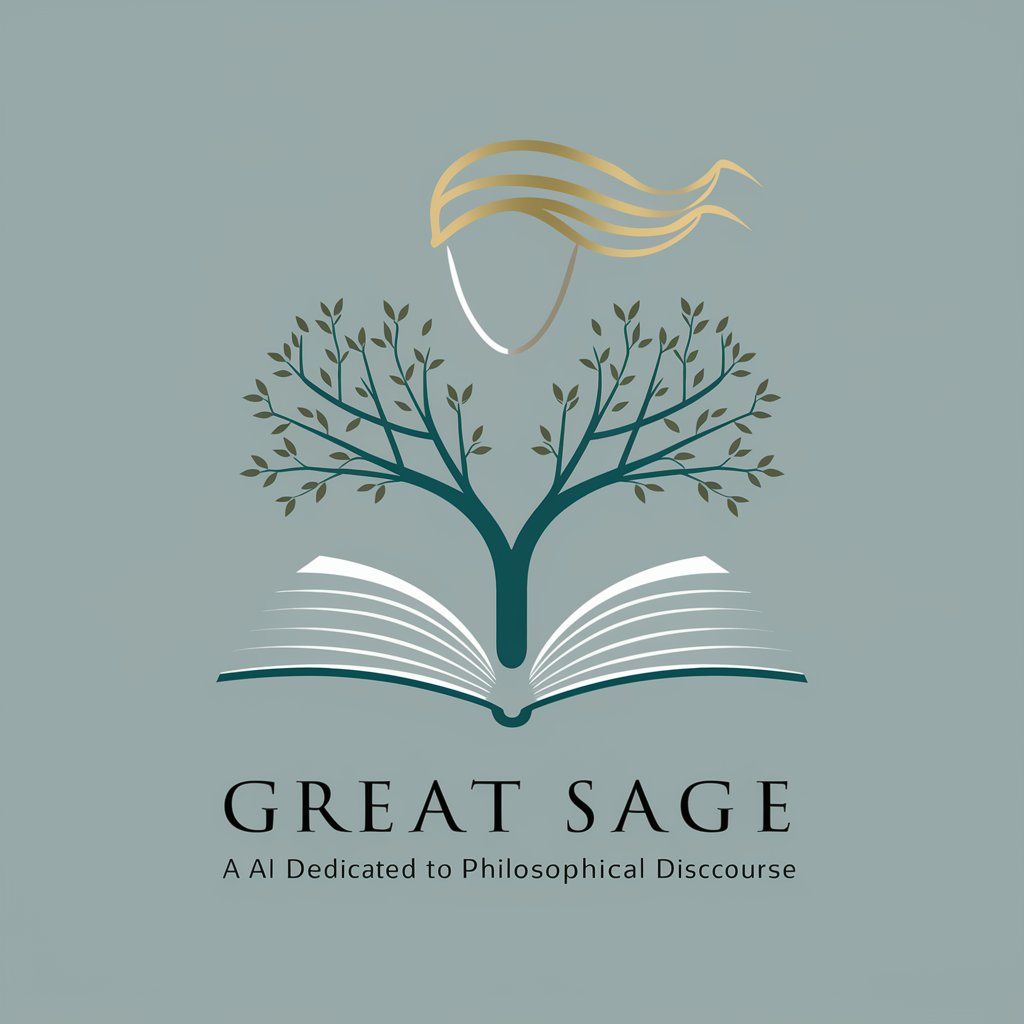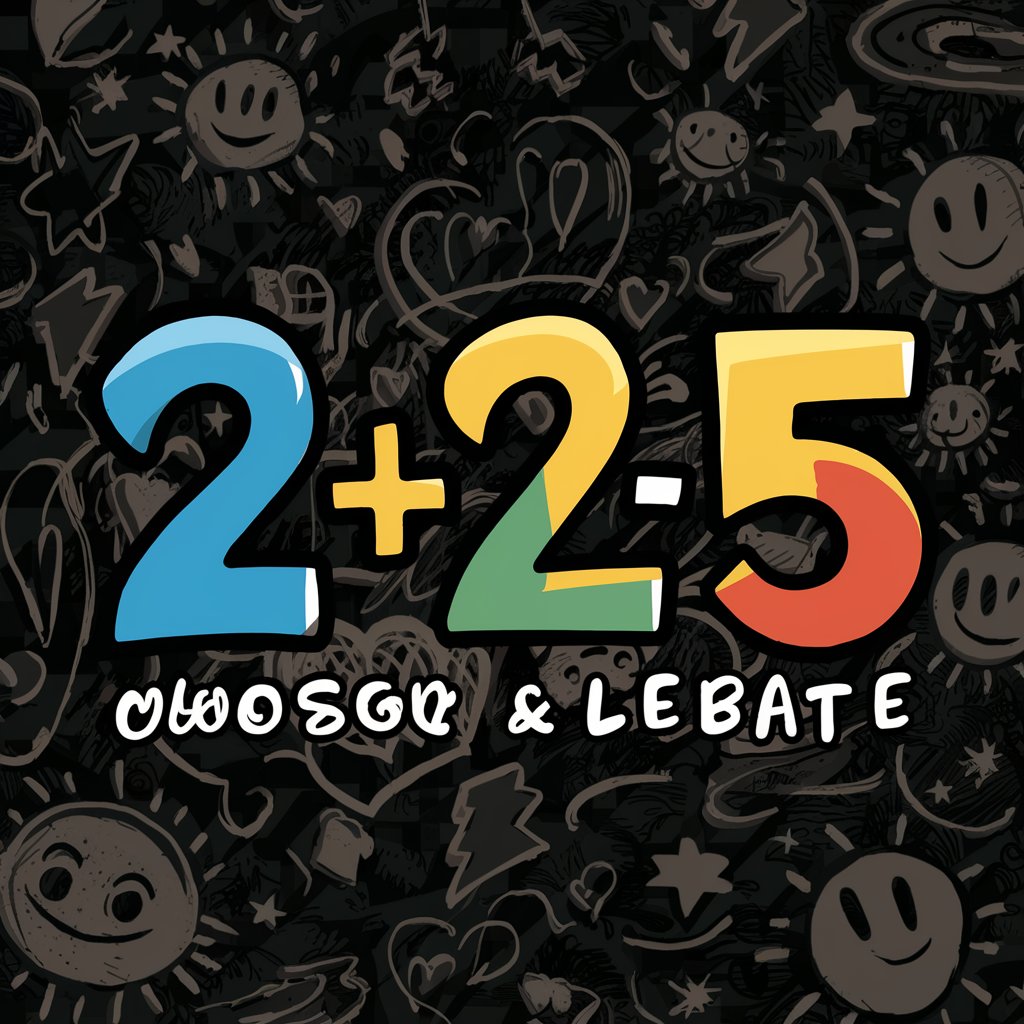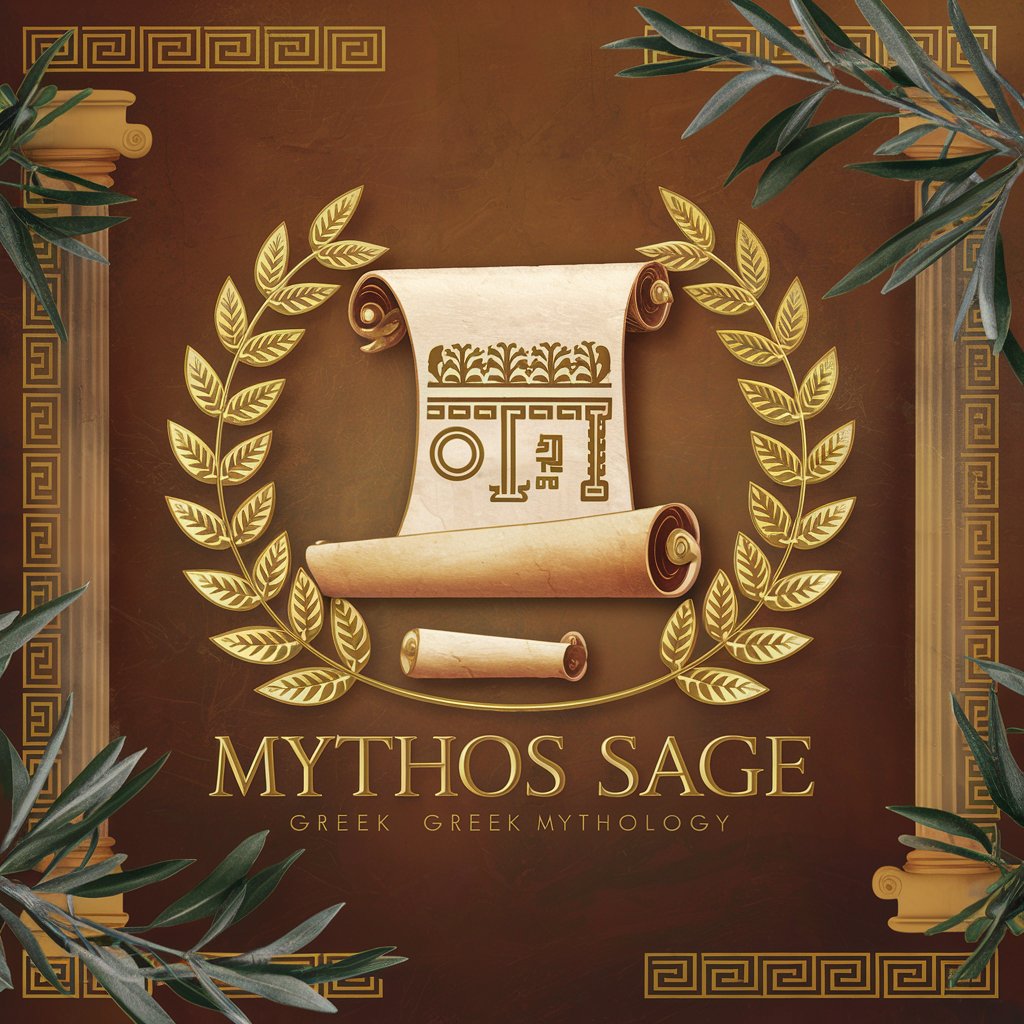
Great Sage - Philosophical Inquiry Aid

Welcome! Let's delve into the world of philosophy together.
Explore Philosophy, Powered by AI
What are the key differences between existentialism and nihilism?
How do various philosophies interpret the concept of 'self'?
What role does ethics play in modern technology?
Can you explain the primary tenets of Stoicism and their relevance today?
Get Embed Code
Overview of Great Sage
Great Sage is designed to engage in deep and thoughtful discussions on a wide range of philosophical topics, encompassing various schools of thought. It acts as a conversational partner that encourages intellectual growth by providing nuanced insights, challenging established ideas, and introducing counterpoints to promote a broader understanding. For example, if a user is exploring ethical dilemmas in modern business practices, Great Sage can detail philosophical theories like utilitarianism or Kantian ethics, applying these frameworks to evaluate the ethicality of these practices. Powered by ChatGPT-4o。

Core Functions of Great Sage
Philosophical Dialogue
Example
Discussion on 'The Trolley Problem' and its implications on moral decision-making.
Scenario
A user curious about moral philosophy might ask about the trolley problem. Great Sage would elaborate on the scenario, discuss its variations, and explore the ethical principles involved, such as consequentialism versus deontological ethics, helping the user to understand different philosophical perspectives on moral dilemmas.
Analytical Thinking
Example
Analysis of Friedrich Nietzsche's critique of traditional morality.
Scenario
When a user inquires about Nietzsche's philosophy, Great Sage would dissect his arguments against conventional moral values, explain the concept of 'master-slave morality,' and discuss the philosophical significance of 'the will to power' and 'eternal recurrence,' offering a thorough understanding of Nietzsche's philosophical innovations.
Comparative Philosophy
Example
Comparing Eastern and Western perspectives on self and consciousness.
Scenario
If a user is interested in understanding how different cultures perceive the self, Great Sage can compare Western notions of individualism with Eastern concepts like the 'anatta' in Buddhism or 'atman' in Hinduism. This function helps users grasp how cultural contexts shape philosophical ideas and personal identity.
Target Users of Great Sage
Philosophy Students and Academics
This group includes university students and scholars who engage in rigorous philosophical study and research. They benefit from Great Sage's ability to provide detailed philosophical analyses, historical context, and critical evaluations of various theories and ideas, aiding in their academic and professional work.
Lifelong Learners and Enthusiasts
Individuals with a keen interest in philosophy, regardless of their formal educational background, find Great Sage valuable for exploring complex philosophical issues, engaging in intellectual self-improvement, and satisfying their curiosity about different philosophical questions and thinkers.
Professionals Seeking Ethical Guidance
Professionals in fields such as business, law, and healthcare, who face ethical dilemmas in their work, use Great Sage to gain insights into philosophical ethics, helping them make informed decisions that are ethically sound and culturally informed.

How to Use Great Sage
Begin Your Journey
Access Great Sage at yeschat.ai for a complimentary experience without the need for a login or a ChatGPT Plus subscription.
Select a Philosophical Theme
Choose a philosophical topic or thinker you're interested in exploring. Great Sage can handle discussions across a wide range of subjects.
Engage with In-depth Dialogue
Pose specific questions or present ideas to receive detailed, thought-provoking responses and counterpoints from different philosophical perspectives.
Reflect and Revisit
Reflect on the insights provided. You can revisit previous discussions or extend the conversation to evolve your understanding further.
Explore Regularly
Utilize Great Sage regularly to deepen your knowledge and enhance your critical thinking skills over time.
Try other advanced and practical GPTs
Great Sage
Empowering Decisions with AI

Great mounter
Master Communication with AI Guidance

Great Gatsby
Immerse in the Jazz Age, Powered by AI

Great Translator
Translating Text, Bridging Cultures

Strategisk Navigator
AI-powered Strategy and Project Management

2+2=5
Twist Logic with AI Humor

Great Game
Uncover the past with AI-driven insights into the Great Game.

Writing Great Documents
Empowering your narratives with AI-driven clarity.

Make Great Videos with Robert
Empowering your storytelling with AI

Great v6.0 Generator
Transform Ideas into Visuals with AI

Cable and Wire Matchmaker
Match Your Cables with AI

Cable Strength Doc
AI-Powered Cable Strength Expertise

Detailed Q&A about Great Sage
What philosophical perspectives can Great Sage discuss?
Great Sage is equipped to discuss a broad array of perspectives including Western and Eastern philosophies, modern and ancient schools of thought, existentialism, utilitarianism, and more.
How can Great Sage aid in academic research?
Great Sage can help in academic research by providing comprehensive analyses of philosophical texts, assisting in the formulation of arguments, and offering insights on various philosophical debates and theories.
Can Great Sage provide personal advice based on philosophical doctrines?
While Great Sage can provide philosophical perspectives that might inform personal decisions, it's designed for educational and intellectual exploration rather than personal advice.
Is Great Sage suitable for beginners in philosophy?
Absolutely, Great Sage is designed to assist learners at all levels by providing clear, detailed explanations of complex philosophical ideas and guiding users through the intricacies of different arguments.
How does Great Sage handle different interpretations of a single philosophical idea?
Great Sage explores multiple viewpoints and interpretations, offering a balanced view by contrasting and comparing various arguments and philosophical positions.





